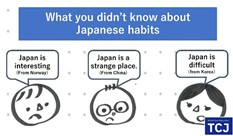Japanese Culture
Explore various aspects of Japanese culture, including traditional manners, customs, weddings, funerals, cross-cultural exchanges, history, recycling and reuse, sustainability, and cultural classes that shape life in Japan.

Japanese Verbal & Nonverbal Communication for Business
When it comes to business, Japan has a vastly different way of communicating compared to many Western countries; and those who fail to account for that difference often find themselves lost in the dis…

Exploring the Enigmatic World of Japanese Noh Theatre: Ancient Masks to Modern Marvels
Noh is to modern Japanese theatre what Shakespeare is to English theatre, and then some. It is the oldest form of masked theatre (like Kabuki, Noh opts for the “theatre” spelling of the word) in the w…

Tokyo Ninja Experiences: Learn the ways of the Shinobi
This page contains affiliate links. Ninjas (also known as shinobi) have gained international fame over the centuries, both within Japan and abroad. Ironically, the very traits of secrecy and stealth t…

Discovering Kabuki: A Guide to Kabuki Theatres, Tickets, and Cultural Insights
So, what is Kabuki theatre, really? To the first timer, it is oftentimes remembered as a jumble of color, fast action and archaic language few can understand. Plots are mysterious and centered largely…

Minimizing Food Loss: Finding Supermarkets in Japan that Sell Expired (Expiring) Food
Japan is one of the world's leading countries in food loss. Expressing "equivalent to every citizen throwing away one bowl of rice every day" is an effective way to convey the magnitude of the problem…

How to Reduce Food Waste in Japan: Steps to Sustainability
Like many other countries, Japan faces a severe problem with food waste. This issue occurs throughout the entire process of food production and consumption, leading to economic losses, environmental i…

Japanese Business Manners and Etiquette
In Japan, there are rules of etiquette suitable for interactions between acquaintances, between customers and shop assistants in shops and in all other social situations. These rules and customs are a…

Japanese Business Gift Giving: Dos and Don'ts for Expatriates
This page contains affiliate links. For Western expats living in Japan, the frequency and occasions for giving and receiving gifts may be surprising. Not only are gifts given between loved ones and fr…

What you didn’t know about Japanese habits
This page contains affiliate links. The following article is contributed by Tokyo Central Japanese Language School. Nice to meet you all! My name is Eri, and I'm a Japanese teacher at a Japanese langu…

Japanese Gift Giving Tradition and Luxury Japanese Gifts
This page contains affiliate links. There are quite many occasions where Japanese people give gifts, it can be a gift giving season or a specific occasion. In this articles, you can learn about typica…

New and Used English Book Stores in Tokyo
Are you on the hunt for some good reading material but wondering where to find something in your native language in the middle of Tokyo? Have you ever stepped into a Japanese bookstore and been overwh…

Is it Safe to Eat Expired Food? - The difference between "Best Before" and "Use By"
In Japanese food labeling, there are two types of dates: "消費期限" (Use By) and "賞味期限" (Best Before). These two are significantly different and determine whether food can or cannot be consumed after the…

Food Banks in Japan
Here is a list of organizations in Japan that engage in volunteer activities to collect food items and ingredients that are nearing their expiration dates or are difficult to sell through regular chan…

Business Card Etiquette in Japan – How to Exchange Business Cards
The ritual of exchanging meishi, which is Japanese for ‘business card,’ is a much higher valued practice in Japan than in the West. This guide will serve to help foreigners who are new to doing busine…

Seating Protocol in Japan - Seating Arrangements
In Japan there is an unspoken rule about where to sit when you are in the company of your elders, co-workers, and customers etc. There are seats known as “Kamiza” and a ranking of seats for “Shimoza”. This is a unique part of Japanese and its purpose is to show respect and hospitality to superiors and customers by being considerate about where you sit.

Japanese Sake - How to Brew and its History
This article is contributed by Konishi Sake Brewery and covers the history of sake, brewing process, and the differences between various types of sake, such as ginjoshu, junmaishu, Honjozo, Genshu, Ko…

Dress Code in Japan: A Guide to Appropriate Japanese Attire
As a largely conservative society, Japan has different standards to Western countries in many aspects of life–including dress code. If you’re keen not to offend and want to be sartorially prepared, keep reading for some practical Japanese dress code tips for what to wear during life’s most important situations.
By PLAZA HOMES

Japanese Body Language and Gestures
The gestures and body language that Japanese people use may differ from the ones used in other countries. As an example, when a Japanese person says “I”, they will point to themselves with their index finger.The meaning of a person bowing can change depending on the angle at which they bow and so on. In this article we will introduce you to common gestures and body languages used in Japan.

Polite and Useful Japanese Business Phrases
Working in a Japanese company requires not only knowledge of Japanese business culture but also the use of a polite form of Japanese that is not commonly used in daily life. Here are some commonly used Japanese business phrases you are bound to encounter while working in Japan.
By PLAZA HOMES

Japanese Cooking Classes in Tokyo
No Japanese, no problem—there are a wide variety of English-friendly cooking classes available throughout Tokyo that can teach you how to make all your favorite Japanese foods, from sushi and ramen to traditional home-cooked meals.
By PLAZA HOMES










